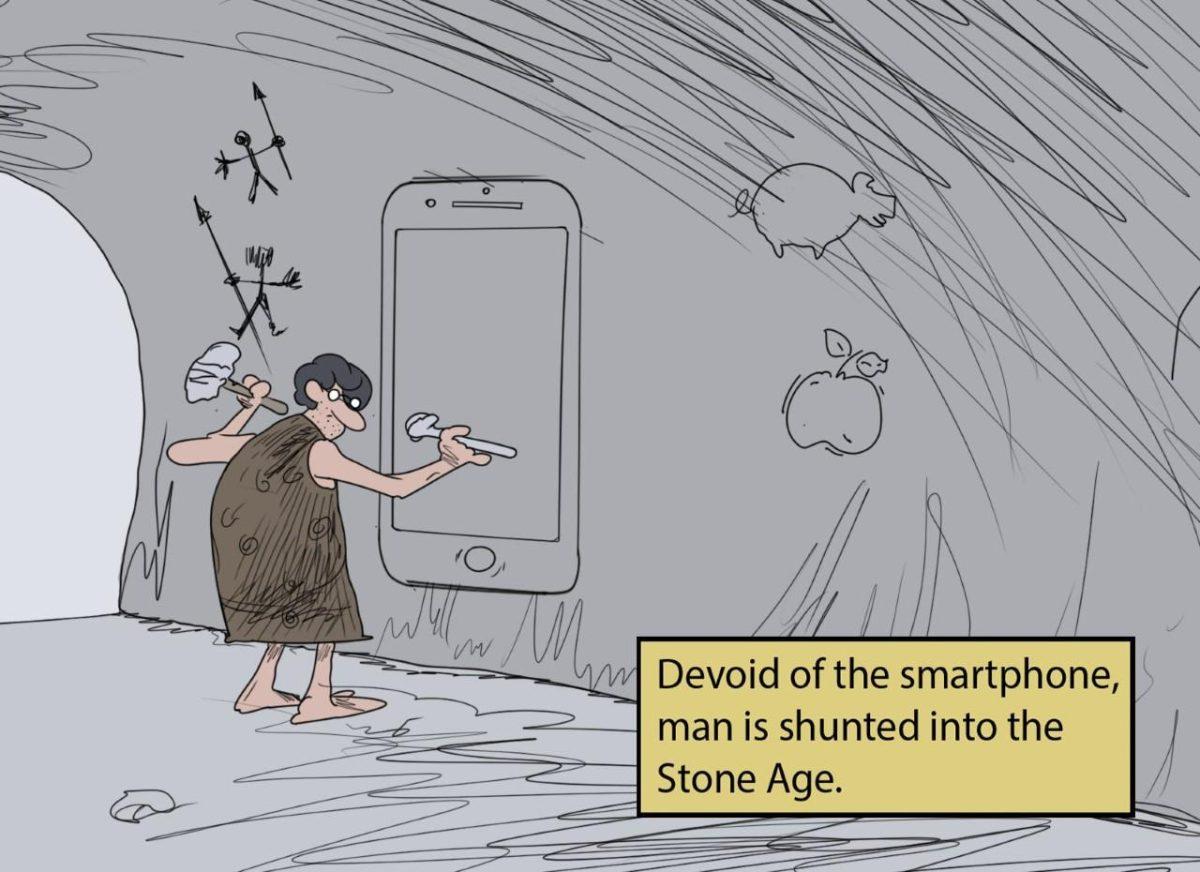When my cell phone stopped charging on the night of March 26, 2020, I was unprepared for the anguish of the next 14 days.
Although my phone had been slowly charging ever more sporadically over the previous weeks, I foolishly ignored all the signs of my phone’s imminent demise and made no preparations for the future. Instead, I waited until my phone refused to charge any further to order a new phone, secure in my assumption that going a couple days without a phone would be more of a fun detox than a nuisance.
And it was—for the first couple days. I could use Instagram direct messaging and GroupMe from my laptop to talk to friends and stay up to date on work and my classes. I emailed my parents to say that I was having some phone trouble, but that I would be able to call them soon. In the meantime, it felt strangely exhilarating to know that whenever I stepped away from my laptop to buy groceries or drive through Cane’s or take a walk, I was completely unreachable.
However, as the machinations of FedEx and Google have delayed my package over two weeks, my exhilaration has soured into a deep anxiety. GroupMe, the app I use for everything work-related, has logged me out and to get back in I need to enter a verification code…that was sent to my phone.
Now, when I need to communicate with someone about anything time-sensitive, I am bound to my laptop, a much more unwieldy accessory than a mobile phone. Instead of feeling excited that I am off the grid (well, by modern standards), I feel increasingly unable to leave my laptop for too long. Instead of detoxing, I feel like I am spending more hours than ever looking at a screen.
What has bothered me most, however, is how socially disconnected I feel from my closest friends and family. I miss calling my parents while being outside, receiving messages from my family abroad through WhatsApp, sending insignificant life updates to my friends through Snapchat. Constant notifications are burdensome, but ultimately I always relish getting news from someone I love. Although I still have ways of keeping up with most people, I miss the ease and casualness that phone-based communication brought to my relationships with people hundreds or even thousands of miles away.
My melodramatic reaction to going without a phone is ridiculous in the context of the thousands of years humans lived without constant communication, but it’s significant in an era where people expect you to answer texts quickly and be available 24/7. It’s even more significant now that social isolation is the norm and virtual communication is essential.
Although I recognize that in the grand scheme of world problems right now, going without a phone is minor, I also feel guilty and irresponsible for letting so much communication fall through. Just thinking about the snaps and family texts and notifications piling up fills me with anxiety, the kind of anxiety that people say is supposed to disappear once you stop relying on your phone.
I hope that when I finally get my new phone I can learn from what I’ve noticed about myself over the past two weeks. I don’t need to scroll through Twitter first thing in the morning to wake up. I also don’t need to scroll through Twitter before bed to fall asleep. Most crucially, I should be grateful for every photo, text and call I get, and for every photo, text and call I can send, all reminders that I and the people I love are alive, well and thinking about each other.
Cécile Girard is a 20-year-old psychology sophomore from Lake Charles, Louisiana.
Opinion: Living without a phone isn’t a fun way to get off the grid, leads to anxiety, limitations
April 11, 2020
Cellphone cave cartoon





